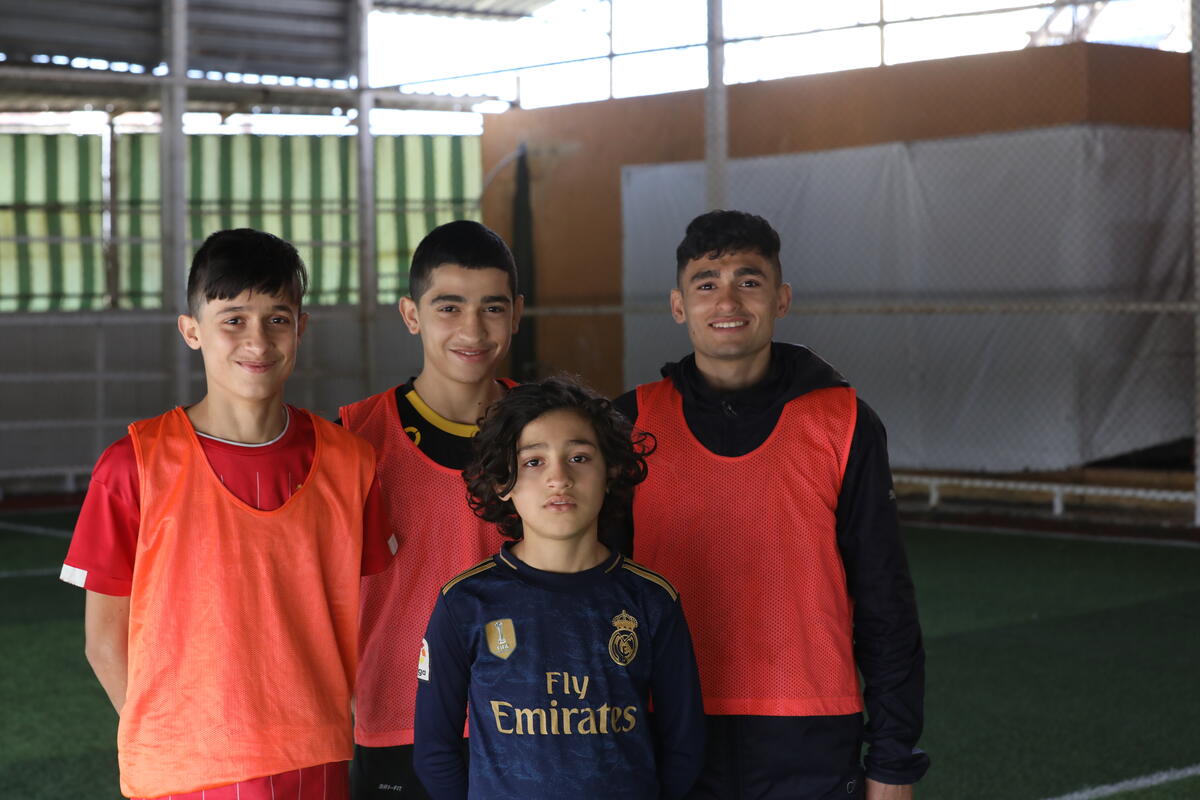UNHCR and partners race to reverse alarming health situation in South Sudan camps
UNHCR and partners race to reverse alarming health situation in South Sudan camps
In South Sudan, UNHCR and partners are intensifying efforts to reverse the alarming rates of malnutrition, disease and death in two camps hosting Sudanese refugees.
Health workers in Yida camp in Unity state first saw a significant increase in death rates among refugee children in late June and early July. MSF reported an average of five children dying every day, mostly from diarrhea and infections.
In the last three weeks, mortality and morbidity rates have started to stabilize, as aid agencies took urgent action to address the root causes. In addition to providing emergency treatment, the aid agencies are also working to mitigate the risk of water-borne and hygiene-related diseases. However, intensive efforts need to continue.
UNHCR has so far dug two out of the six additional boreholes that will double the supply of potable water in Yida. Together with the NGO Solidarites, we have been conducting a 40-day bucket cleaning and chlorination campaign at water points. Drainage systems are being improved at all seven water points to reduce the risk of contamination and water-borne diseases from standing water. We are promoting hygiene practices throughout the camp and have distributed some of the 7 tons of soap that were airlifted from Bentiu. Community latrines are being built to meet the needs of the growing population.
Today UNHCR will begin distributing more soap, jerry cans and blankets to over 8,200 families with children under the age of five. We are targeting the most vulnerable refugees in the camp to improve sanitization and minimize the risk of respiratory infections in these households. The distribution of other supplies such as plastic sheeting and buckets will continue throughout the month.
Nonetheless, the challenges remain daunting in Yida. This remote border camp now hosts some 60,000 refugees from Sudan's South Kordofan state, a four-fold increase since April. Children form more than a quarter of this population.
Most refugees have been arriving in a very weak state - exhausted, dehydrated and malnourished. The rainy season has exacerbated the situation, bringing seasonal diseases to an already fragile population. The rains have also flooded nearby roads and turned Yida into a virtual island. Airlifts are now the only way to get life-saving aid into the camp.
In fact, UNHCR is now planning to airlift an additional 8,500 plastic sheets and 15,000 mosquito nets for immediate distribution to the new arrivals. Many are currently sleeping under poorly-thatched roofs, which increase the risk of respiratory illnesses and malaria particularly among children under five.
Meanwhile in Upper Nile state, one in three children is believed to be malnourished in Batil camp. Common health problems in this camp of 35,000 refugees include watery diarrhea, respiratory tract infections and increasingly, malaria.
To address the high malnutrition rates, aid agencies started a blanket supplementary feeding across the camp last Sunday, followed by a targetted supplementary feeding program to help children recover from moderate acute malnutrition. In addition, some 12 per cent of children under five are receiving treatment for severe acute malnutrition.
In total, Batil has five clinics for health and nutrition treatments, and 20 oral rehydration points throughout the camp. The health agencies have set up surveillance and response mechanisms for possible outbreaks of diarrhoeal and other diseases.
Stats update - South Sudan is now hosting 170,000 Sudanese refugees. More are arriving from South Kordofan and Blue Nile every day to find challenging living conditions as aid agencies struggle to cope with immense logistical problems.
Funding update - In a welcome development this week, the Common Humanitarian Fund allocated US$10 million to the refugee emergency in South Sudan, mostly to NGOs working in the areas of health, nutrition, water, sanitation, road access and site preparation. UNHCR has only received US $47.5 million out of the US$ 186 million it needs to meet the urgent needs of the Sudanese refugees in South Sudan.
For further information on this topic, please contact:
- In Nairobi (UNHCR regional hub): Millicent Mutuli on mobile + 251 735 337608
- In Juba: Terry Ongaro on mobile: +211 927 770 040
- In Geneva, Fatoumata Lejeune-Kaba on mobile +41 79 249 3483









